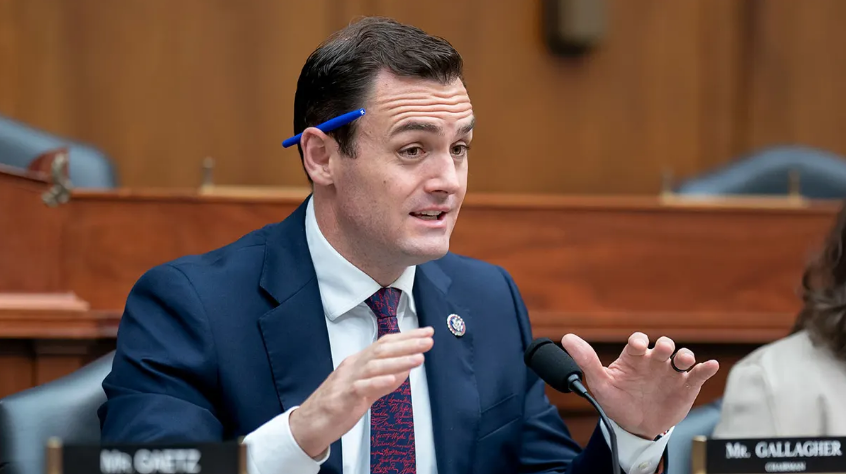After three years of service in the House of Representatives, Republican lawmaker Jake LaTurner has announced that he will not seek reelection in November. The 36-year-old from Kansas released a statement saying, "after much prayer and consideration, I will not seek reelection this Fall."
LaTurner cited reasons such as wanting to spend more time with his family and pursuing other opportunities. His decision adds to the growing trend of House members on both sides of the aisle leaving Congress amidst a year filled with infighting and discord.
LaTurner's announcement follows a string of retirement announcements from both Republican and Democratic lawmakers, with at least 20 House Republicans and a dozen Democrats planning to leave Congress without immediate plans to run for another office. Another five are seeking higher office. This comes on the heels of a year where frustration with congressional work, increasing incivility between colleagues, and difficulty in governing have been cited as reasons for retirement.
Among the young House Republicans heading for the door is 40-year-old Mike Gallagher from Wisconsin, who is set to resign as early as Saturday to take a job in the private sector. Another is 48-year-old Patrick McHenry, who is retiring after reaching the pinnacle of his political career last year as the House speaker pro tempore. Both lawmakers have expressed frustration with the current state of affairs in Congress and have cited personal reasons for their retirement.
The growing number of retirements among young House Republicans is a cause for concern for the party, as many are touted as rising stars within the GOP. Along with LaTurner, this trend includes 33-year-old Elise Stefanik, who recently announced she will not be seeking reelection to the House to run for governor of New York. This exodus of young and promising Republican lawmakers comes at a time when the party is facing a tough battle to take back control of the House in the 2022 midterm elections.
LaTurner is not the only one citing "dysfunction" within Congress as a reason for his retirement. Many other lawmakers, both Republicans and Democrats, have expressed frustration with the current state of affairs, particularly in terms of incivility and difficulty in governing. The recent turmoil within the Republican party, including threats to oust House speaker Mike Johnson (R-La.), has only added to the growing discontent among lawmakers.
Johnson's decision to move forward with a vote on a foreign aid package that includes aid to Ukraine has sparked backlash from hardline conservatives, including Rep. Marjorie Taylor Greene (R-Ga.), who has threatened to initiate a vote to remove him. This threat further highlights the growing divide within the Republican party, which has only intensified after the three-week speaker vacancy last year. It is possible that the current turmoil within the party played a role in LaTurner's decision to retire.
Despite the growing number of retirements, there are still some young Republican lawmakers committed to staying in Congress. 37-year-old Steve Scalise (R-La.), who was recently reelected as House Minority Whip, has reaffirmed his commitment to serving in Congress. Similarly, 37-year-old Dan Crenshaw (R-Texas) has said he has "a lot left to do" in Congress and plans to continue serving his constituents.
In the coming weeks, more retirement announcements from both sides of the aisle are expected as lawmakers weigh their options amidst the current state of affairs in Congress. The departure of young and promising lawmakers, as well as the increasing dysfunction and incivility within Congress, could have long-lasting implications for the future of American politics. It remains to be seen how these retirements will impact the upcoming midterm elections and the balance of power within Congress.

